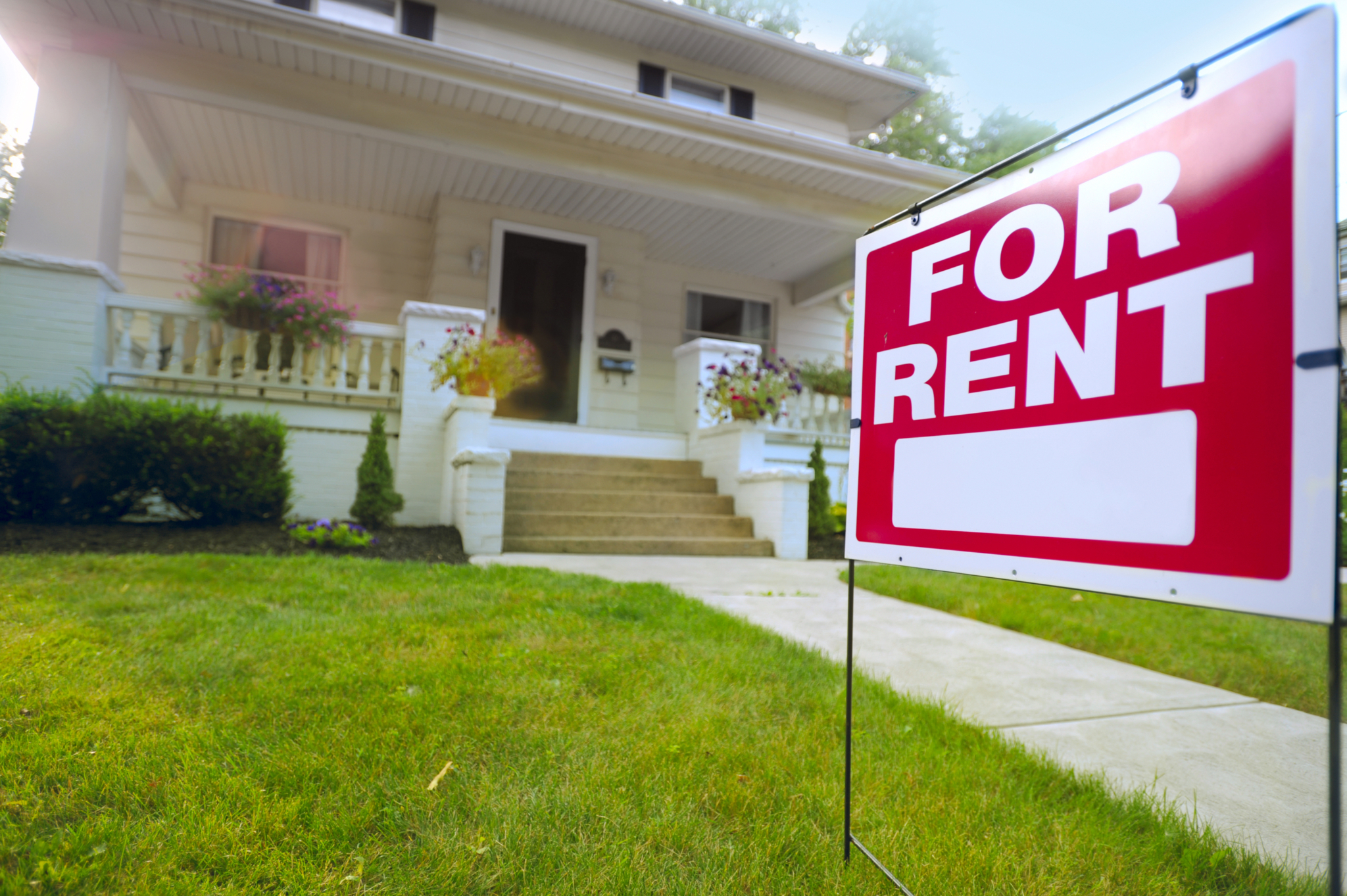The idea of selling your home, no matter the reason, can be pretty intimidating. For example, you may have a great opportunity that takes you out of state, or you have found the home of your dreams. In these situations, you may ask yourself whether or not you should sell your home, or maybe you would consider renting your house out. Of course, if you sell your home, you realize a profit much sooner. But, on the other hand, if you rent your home, you have created a new income stream. In the following article, Summit Way Realty helps you navigate listing your home vs. leasing your home.
Navigating the Dilemma of Listing vs. Leasing
Have you found yourself in a position wondering whether you should rent your home? If you rent your home, what are the benefits? For most individuals, the solution is straightforward: money. However, to avoid a decision that you may later regret, it is essential to weigh your options to decide what is best for you. The bulk of property in the United States is steadily increasing in value, making it a stronger bet against ever-rising inflation rather than low-interest rates of money sitting in a savings account. For example, in the United States, according to Zillow, the average price of a home has gone up 13.2% over the last year. Of course, each market location is different, but a home is generally a sound investment.
Below we identify when it may be a good idea to rent vs. when you want to sell.
When you rent your house, the renter will essentially pay your mortgage and other fees for you as a landlord. In addition, if your home is in a desirable neighborhood, you may be able to make a profit after you pay the mortgage and other bills.
Renting Your House May be a Good Option if:
- You are upside down in your mortgage, meaning you owe more than the house would bring from selling.
- You can cover the mortgage and all bills and still have a profit from rental income, turning it into an asset instead of an obligation.
- The housing market is currently down in your area.
Selling Your House May be a Good Option if:
- The demand for homes in your price range and area is high.
- The house needs extensive renovations to rent it out.
- You live in a less desirable neighborhood for renters.
- You do not have the time or willingness to manage the duties of a landlord.
- Your profit from selling is at an all-time high.
Generating a Profit
You will need to run some detailed calculations to ensure profitability. To begin, tally up all of your possible expenditures:
- Mortgage
- Homeowners Insurance
- HOA
- Home Maintenance
- Etc.

Next, you will want to examine the market in your area to determine if the monthly rent you charge will be enough to cover your costs and provide a reasonable return.
Example: You need $2000 per month to cover your costs and have a little extra for a return, but the average rent in your area is only $1700 per month. In this scenario, you may have difficulty in finding reliable tenants to rent your house.
Do comprehensive research on comparable homes in your area before assuming you know how much your property would rent for. Look at websites such as Realtor.com, Zillow, and PadMapper to get an idea of the average rent. Consider your home’s features and how they compare with other rentals in your surrounding area.
Calculate the Costs of Renting Your House Out:
- Monthly mortgage payments
- Insurance for your home/liability insurance
- Utilities that are not the responsibility of the tenant
- Maintenance expenses might be variable or constant
- Fees for homeowner associations
- Taxation on real estate
- Income taxes on rental properties
- Rental licenses and city-specific fees

Remember that every tenant will eventually move on and relocate. The average length of time a renter stays in one place is two years. So you may have to contend with your house being vacant while preparing for your next tenant. As a result, it’s wise to have a fund to cover a minimum of one month’s rent during the period between renters.
What Are the Tax Obligations when Renting Your House Out?
As a landlord, you are essentially a self-employed business owner. And, as a business owner, you are required to pay taxes; this applies to rental homes as well. And while owning a rental property can be an excellent investment towards your future, you need to understand your federal tax obligations. See the Internal Revenue Service (IRS) website for your rental home tax responsibilities.
When it comes to deductions, you can deduct a wide range of expenses. One such example is that you can deduct the cost of maintaining your property to include supplies and repairs; however, you cannot deduct the cost of improvements. So, if you remodel a bathroom, kitchen, or finish your basement to make your house more desirable, don’t anticipate a tax break for your work. In addition, these deductions can change from year to year, so it is a good idea to consult an experienced accountant.
Are You Prepared for The Responsibilities of Being a Landlord?
You become a landlord when renting your house out to someone else. Here are a few of the obstacles you will need to navigate.
Property Maintenance
When someone rents your home, there is an expectation that you will quickly resolve any issues or concerns they may have as the landlord. So, be prepared to handle the problems quickly, whether it’s an issue with the HVAC or the neighbor’s kid throwing a ball through the window. In addition, most industry professionals create a budget of a minimum of at least 1% of your home’s worth for the cost of maintenance and upkeep. So, for a $200,000 house, have a minimum fund of $2,000 available to pay for expected and unexpected expenditures.
Many landlords, particularly those who do not live in the same area as their rental homes, use property management firms to handle the daily requests and obligations that come with being a landlord. Management firms collect rent, interact with renters, arrange for repairs and maintenance, and often have options to assist you in screening prospective tenants.

The average cost of a property management firm is between 10% to 12% of the monthly rent. It is essential to keep in mind that you’ll still be responsible for the cost of repairs. The benefit is that a professional and experienced property manager will take care of your property and communicate with your tenants.
Evicting a Tenant
With the landscape of 2020 rolling into 2021 being chaotic due to COVID-19, approximately 31% of renters in the US have not paid rent since April 2020. While this is a rare incident, it does highlight a possible risk you may face while renting your house out. Every year, there are well over 3 million cases of eviction in the United States.
Although you may have a rigorous tenant screening process, some things out of your control happen in life. Your tenant, for example, could be dealing with unforeseen sickness or the loss of a job, or they may just stop paying their rent. If this happens, you must ensure you have enough funds to pay the mortgage regardless of the tenant(s) failure to pay. As a landlord, you have rights when a tenant stops paying their rent. For more information, NOLO has put together an article highlighting some of the rights, specifically during COVID-19.
Handling Emotions
Being a landlord frequently entails emotional work, especially when related to eviction, collecting late rent, or talking to tenants about following their rental agreement rules. If you have difficulty handling conflict, you may want to hire an experienced property manager to address issues as they arise.
Although renting your house may be a fantastic way to increase your income stream, it’s essential to evaluate whether you have the fortitude to deal with the responsibility, and sometimes stress, of being a landlord.
Returning Home
Renting out a property might ensure that homeowners who need to relocate for work or education have a place to return when they are ready. At the same time, this may significantly benefit competitive markets, where moderately priced houses sell quickly. In addition, knowing that you won’t have to deal with the stress of months of house shopping may be a great relief. And, if house prices have risen in the period you’ve been gone, being able to move back into your property can save a lot of money.
As a result, it is crucial to understand your renters’ rights and your rights as the landlord before renting out your home. For example, if your renter is renting month to month, in most States, they must give you a full 30 days notice before vacating. And if you signed a lengthier lease, such as a year, you must follow the terms of your rental agreement.
Flip-Flopping from Renting Your House Out to Selling
Nothing is stopping you from changing your mind when it comes to renting your house out. You may start out renting your home and then change your mind six months to a year down the road. However, keep in mind that not all tenants will respect your property as you do, and you may have to contend with damage due to their neglect. Another thing to consider is that it might be more challenging to sell a home that has a tenant living there.
It is much easier to sell an empty home. Many rental agreements require the landlord to give a 24-hour notice to come by, and when you are trying to schedule showings, that’s not always convenient for your potential buyers. Which, unfortunately, makes for a difficult situation when you are attempting to sell your property.
Is it Worthwhile to Rent Out Your Home?
There are always pros and cons to every worthwhile endeavor and in the case of renting your house out vs. selling your home comes with its own set of benefits and drawbacks. At Summit Way Realty, we are experts in our industry and have the local market knowledge to assist our clients. So if you are unclear about your property’s current worth and the possible sales price in the present market, give us a call. We would be happy to help! Along with that, we are one of Kansas City’s top-rated real estate agencies. From unrivaled services to our selection of real estate options and our savvy marketing skills, we are the team to call if you’re looking to sell, buy, or invest. So contact us today to get started.







